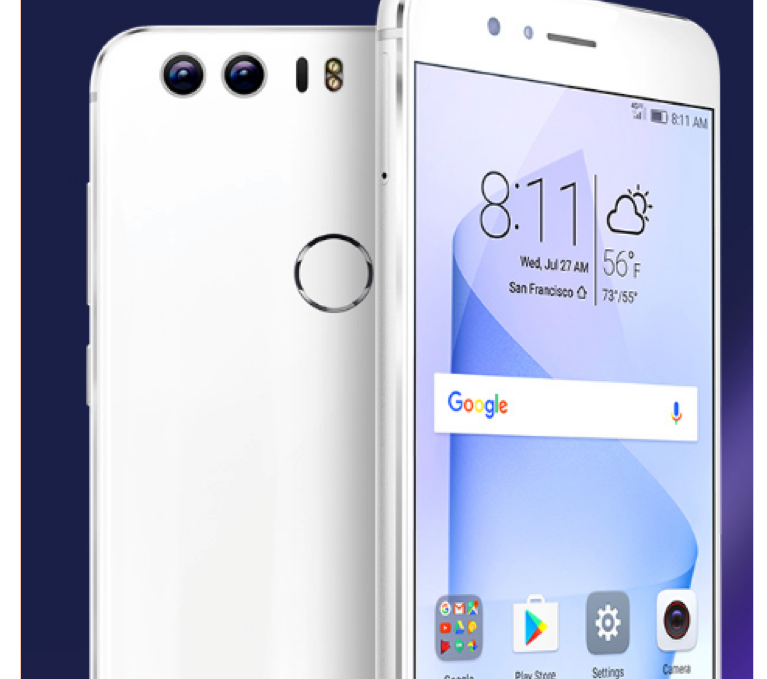

The Honor 8 smartphone, introduced in the U.S. at a glitzy San Francisco press conference Tuesday night, is not likely to be an iPhone or Samsung Galaxy killer but it’s one of a growing number of phones that offer premium quality at a budget price — under $400.
Honor is a subsidiary of Huawei, one of China’s largest phone makers, which also makes Google’s well regarded Nexus 6P smartphone. Other companies, including HTC, Motorola, OnePlus and ZTE also make some pretty impressive phones in the budget price range.
There was a time when price didn’t much matter because most phone buyers were getting a subsidy from their carrier. A $650 iPhone, for example, cost consumers only $200 as long as they were willing to sign a two-year contract with their carrier.
Of course, the cost of the phone was built-into your monthly bill, but you never saw it. Now — with some exceptions — the carrier expects you to pay full price for the phone.
If confronted with the choice of paying $650 to $750 or as little as $350 for comparable products, I’d certainly take a long look at any high quality low-cost options.
I like the Honor 8, but based on the company’s marketing pitch, it’s not for me. I’m a baby boomer and, at that news conference, Honor President George Zhao said the Honor 8 was designed for millennials and, as if to emphasize the youth angle, they are sponsoring the FISE skateboard World Series whose website describes Honor, as “a smartphone brand dedicated to the young.”
Assuming they’ll allow those of us over 35 to buy one, the Honor 8 starts at $399 for a model with 32 GB of storage but you can register for a $50 rebate in the form of a gift card. Another $50 buys you a model with 64 GB of storage, but if that’s not enough you can get up to another 128 GB with a microSD card, which you can’t do with an iPhone.
It runs the current Marshmallow version of Android and comes with what the company bills as a dual lens “bionic” 12 megapixel rear camera. One of the lenses captures black and white and the other color, which the company says helps you “capture crisper, more detailed photos.” So far my photos look good, but not noticeably better than what you’d get with a recent Samsung or iPhone, though that’s a pretty high standard. The 8 MP front facing camera takes perfectly adequate selfies.
The phone has a 5.2-inch screen, which is smaller than an iPhone 6S Plus but larger than a 6S. It fits well in the hand and is big enough for my eyes and fingers.
My favorite feature of the phone is the button on the back that serves as a fingerprint reader and programmable smart button. Fingerprint recognition is instantaneous and extremely accurate. It has never failed to unlock when I touch it.
You can program that same button to launch up to three apps — depending on whether you press it once or twice or hold it down for a long press.
Another thing I noticed about the phone is that it easily and accurately hears and recognizes my voice when I use “OK Google” to get hands-free navigation when I’m driving or do web searches when I don’t feel like typing long phrases on the phone’s small virtual keyboard. I’m a big fan of using voice to control a phone as you can do with Siri on an iPhone or “OK Google” on most Androids but — unlike many phones I’ve tested — this one seems to pick up my voice easily, even when I speak softly in a noisy area.
I’m not saying that the Honor 8 is necessarily better than the high-end phones from Apple and Samsung but, at $350 after rebate, it’s hundreds of dollars less expensive.
And, of course, it’s only one of several high-end phones that are more affordable than those from the two leading smartphone makers.
I do have a word of warning for young Brooklyn Beckham. The Honor 8 has beautiful reflective glass on the front and rear, which looks great but is subject to breaking if dropped. For that, and for personal safety, I don’t recommend using it while skateboarding.